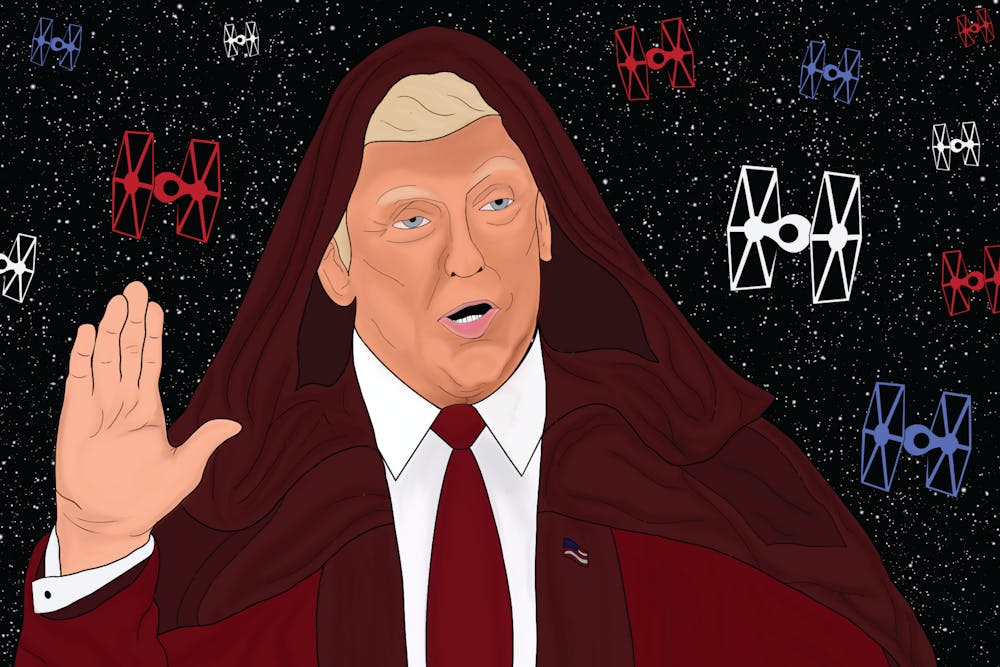My most sacred tradition in life is my annual rewatch of every Star Wars movie over winter break. My devotion to these movies provides me with an opportunity to cling to my childhood and seek a new hope moving into the new year.
Without a doubt, my favorite film is "Revenge of the Sith." While some fans take issue with the prequels, I think that "Revenge of the Sith" perfectly captures the essence of "Star Wars." At its core, the movie is a romantic tragedy filled with critiques on tyrannical governments.
While some may find it hard to look past the flashing lights of a lightsaber to seek any deeper meaning within the series, "Star Wars" has forever been a political drama: the original trilogy is a close examination of a rebel movement against an overarching empire who seeks to control its inhabitants.
My favorite scene in "Revenge of the Sith" comes near the end of the movie, where the democratically-elected Palpatine seizes control of the Senate and declares himself emperor of the galaxy. This announcement is met with uproarious applause from those he has now taken control of.
It is thanks to this most recent rewatch of the movie that I felt a massive sense of deja vu upon witnessing Donald Trump’s inauguration last week. I couldn’t help but recall the aforementioned scene as a single picture of the inauguration scorched itself into my mind — that of Elon Musk, Jeff Bezos and Mark Zuckerberg seated together. It was almost like our very own set of galactic emperors had finally taken the opportunity to publicly confirm their meddling behind the scenes.
So much of the media we consume directly relates to our everyday lives, yet it often seems like so many consumers are missing the very point. To continue with the "Star Wars" example, one poll found that over 50 percent of "Star Wars" fans didn’t view the series as political. While the movies may not blatantly explain their political messaging to audiences, a series about a rebel movement aiming to fight back against a repressive regime is inherently political.
The refusal to acknowledge, and thus appreciate, political messages imbued within media is to the detriment of ourselves. Last year, I watched the new "The Hunger Games" movie and felt a massive sense of grief after finishing it. The movie premiered around the time Israel began its bombing campaign of Gaza civilians, including children.
If a movie such as the "Hunger Games" can unequivocally make it clear that the murder of children for political gain is unacceptable, and be revered by thousands of viewers, why was it so difficult to transfer that same understanding to a real world event?
Movements like Black Lives Matter were frequently condemned for their relation to riots across the country during the pandemic. Overwhelmingly, society seemingly condemned violence as a means of progress. But, If we as a society can celebrate Luke Skywalker blowing up the Death Star for the sake of the rebellion, why are we so inclined to condemn rebels within our own society?




